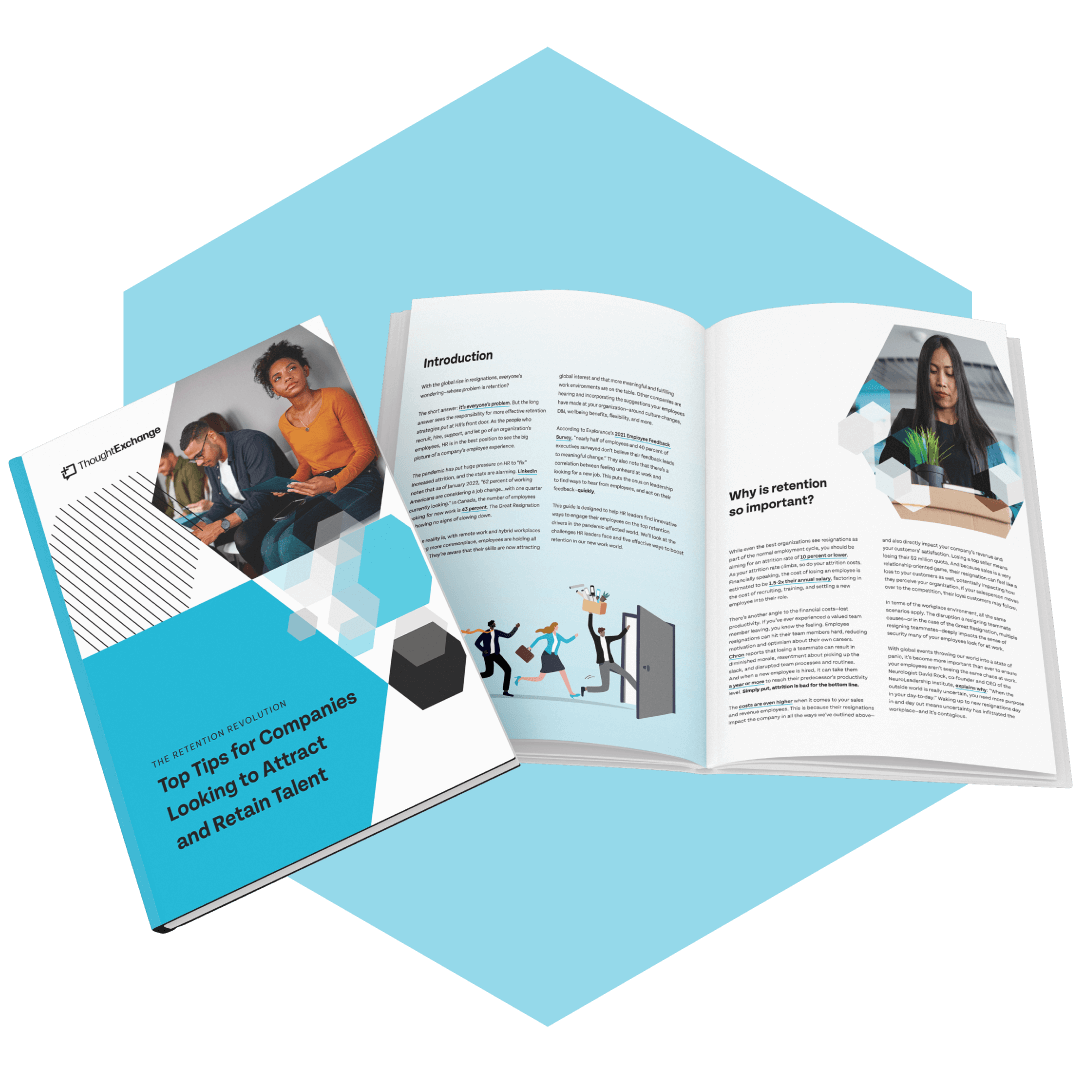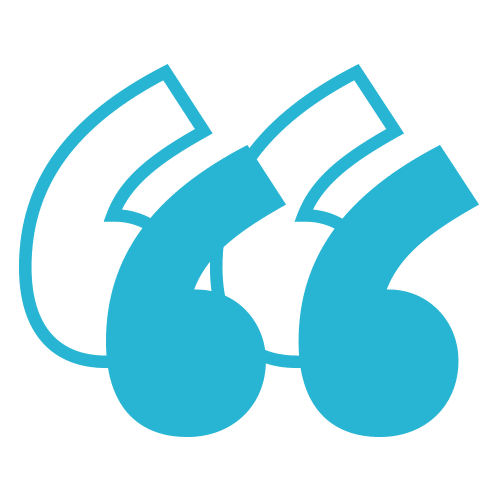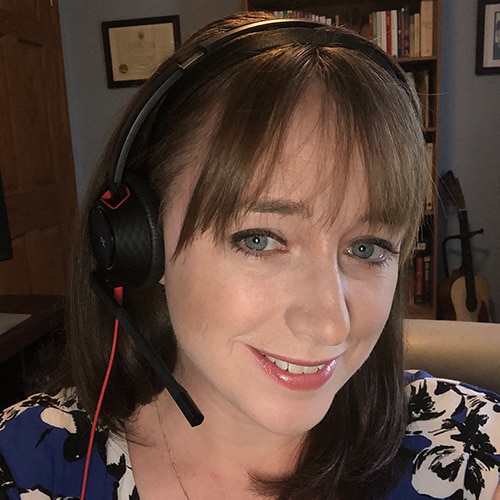April 19, 2022
Sarah Rodrigues
What We Said – and Heard – at SXSW 2022
7 minutes
South by Southwest (SXSW) is an annual conference that focuses on emerging technology, creativity, and innovation. In March 2022, it was held for the first time in-person since 2019.
ThoughtExchange CEO, Dave MacLeod, was proud to share the stage with Judith Rudge, Global Senior Director of Talent Acquisition for Nike, to discuss how to “Disrupt Your Own Leadership Failures.”
With the pandemic exacerbating challenges for leaders and employees, particularly women and people of color, Dave and Judith challenged leaders in the audience to confront the hard truths of their own failures, and understand how to use technology to facilitate more inclusive and innovative conversations.
Why ask for feedback?
Dave, citing his own executive privilege, remarked that leaders often object to actively seeking employee feedback because they believe that “If someone has something to say to me, they should have the respect and dignity to come up and tell that to my face. If they’re not willing to do that, I’m not willing to hear from them.” Judith called this “ridiculousness.”
Leaders who expect (and only accept) this kind of directness will find themselves out of the loop very quickly. While some employees may have the access, comfort level, and privilege of speaking directly to their top leaders in that fashion, there will be many who choose not to speak up even in the best of workplace cultures.
For example, in a recent study ThoughtExchange conducted on Gen Z employees, 60-70% of respondents who don’t feel heard at work are hesitant to share their ideas or feedback due to their position in the company hierarchy, concerns around discrimination, or fear of reprisal. You can download the complete research report, Gen Z at Work, for a complete breakdown.
Bias that impacts conversations, particularly for diverse employees, must be acknowledged. Judith mentioned a particular conversation discussing candidates for an executive role, where people with significant privilege criticized a candidate’s “executive presence.” When asked to explain what they meant, they couldn’t. This type of bias significantly disadvantages diverse candidates.

Action creates disruption

This topic hits home for us at ThoughtExchange. While our platform allows organizations to gather data easily, inclusively, and at scale, what we can’t do is make organizations act on the information. Judith noted that this was a significant issue for her in a previous role:
“We surveyed every woman engineer in their first week, and asked, ‘What would make your onboarding easier as a woman in engineering?’ 11,000 women responded and gave us the most incredible feedback about what we could be doing differently… and how uninviting our culture was. What do you think we did with that information? Do you think we did something with it? To be frank, we didn’t. Don’t ask your employees, customers, and prospects for feedback, and then do nothing with it.”
Dave pointed out that globally, talk is cheap. American companies pledged $50B to black communities in the wake of George Floyd’s murder, and (as of May 2021) only $250M had materialized. Is this because companies are in it for the long haul, or because the pledges were merely performative?
Judith conceded that ADEI work takes time: “This work will not be done overnight, and we need to acknowledge that in order to move forward. Many companies were willing to do performative work immediately, but were not willing to make the commitment to long-term change.”
Particularly when it comes to expanding and building on the diversity of our organizations, Judith pointed out that there’s more than one metric to consider: “When you’re looking at diversity, you can’t only look at hiring and recruiting. What are you doing with incumbents, your current diverse population. And how fast are you losing that diversity? Ask them about their retention.” If an organization is losing diverse employees as fast as it can recruit them, that may indicate a systemic issue with the culture that doesn’t value or appreciate diversity.
The importance of listening

Then we listened
When you ask people to tell you, with curiosity, what they’re thinking and feeling, you can learn things you didn’t expect. Many of these organizations became flexible because they heard what their employees were saying, and gave them what they needed.
“On our team, we use feedback tools, including ThoughtExchange, in a multitude of ways. One of the ways is to better understand what our leaders currently think we are doing well, and where we’re struggling.” When Judith asked her hiring team what else they could be doing to hire diverse talent, the voices were many, the ideas were plentiful, and the rewards were significant.



